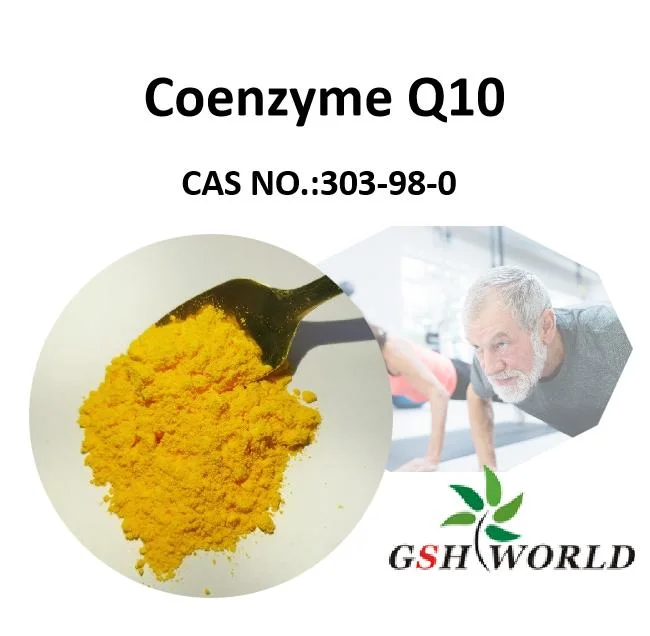Coq10 is one such supplement that has become increasingly popular and readily available in recent years.
The vitamin and supplement aisle is often a bewildering array of bottles and jars with professional-sounding names arranged in alphabetical order.
What do you need, what do you don’t need, what’s safe, and what should you avoid?
Some studies suggest that it may be helpful for certain people with specific health problems.
What is CoQ10?
Coenzyme Q10, more commonly known as CoQ10, is a nutrient that the body naturally produces.
Its found in almost all cells of the body and concentrated in the mitochondria, which are the “energy factories” of cells.

Coenzyme Q10 involved in the production of energy and provides power for biochemical reactions.
It is also a powerful antioxidant that helps protect the brain, heart and muscles, while also possessing anti-inflammatory properties.
Antioxidants are naturally occurring chemicals that help the body fend off free radicals.
Free radicals are unstable molecules that can damage cells and increase the risk of chronic diseases.
Coq10 is found in oily fish such as salmon, mackerel and sardines, eggs, nuts, chicken, animal offal such as liver, heart and brain, and whole grains.
Most of the coenzyme Q10 required by the human body synthesized by itself, but some of it can also obtained from food.
However, with age, the body’s coQ10 levels will begin to decline, which is a natural aging process.
The body’s ability to produce this vital nutrient peaks in the 20s and then slowly diminishes.
Certain health conditions, such as heart disease, cancer, diabetes, and neurodegenerative diseases such as Parkinson’s or Alzheimer’s, can also lead to lower coQ10 levels.
It is not easy to determine whether CoQ10 is deficient because it cannot accurately determined by blood tests.
The amount of coenzyme Q10 in the blood does not necessarily reflect the amount in tissues and cells, even if the level of coenzyme Q10 in the blood is in the normal range, but if the absorption is not good, there may still be a deficiency.
Benefits of Coenzyme Q10 supplements
Relieve migraines
Coq10 can help reduce inflammation and promote healing.
Studies have shown that it may reduce the frequency, severity, and duration of migraine attacks.
Studies have shown that when CoQ10 used in combination with magnesium and riboflavin (aka vitamin B2), it achieves good results in reducing the pain and effects of migraine headaches.
But these studies were small, and more research is needed to confirm them.
These effects were only seen when people took high doses of the supplement.
Lower risk of heart disease
For people with heart disease, coenzyme Q10 supplements may be helpful.
A long-term study showed that people with moderate to severe heart failure who took a daily Coenzyme Q10 supplement had a 42 percent lower risk of a first major adverse cardiovascular event (MACE).
The term covers conditions such as sudden hospitalization for heart failure and death related to heart disease.
However, it is important to note that CoQ10 is not a treatment for heart disease, it works in addition to other treatments you are receiving and is not a substitute for other treatments.
More research is needed to determine the benefits of CoQ10 in patients with heart disease and the ideal dose.
Not effective for muscle pain caused by statins
Coq10 supplements do not relieve muscle pain caused by statins.
Statins are prescription drugs that help lower cholesterol, which reduces the risk of heart attacks and strokes, but for some people they can come with side effects such as muscle pain.
It was once thought that these muscle aches were due to statins lowering overall coQ10 levels, but this proved not to be the case.
Other possible benefits
Exercise recovery: While the data is inconclusive, CoQ10 has called an “interesting molecule” because of its potential to help people recover from fatigue after exercise.
Diabetes: A review of studies shows that CoQ10 can reduce the oxidative stress caused by diabetes, which is the imbalance of free radicals and antioxidants in the body.
Skin health: CoQ10 may help increase collagen production. Collagen is the main component of skin that keeps it elastic, but the body’s production of it decreases as we age.
Fertility: One study suggests that CoQ10 supplements may improve egg quality, and other studies have found that it can help sperm swim better, i.e. improve sperm motility.
As with other supplements, CoQ10 has studied for a variety of reasons, but there limited research and no conclusive evidence that it has other benefits.
How much CoQ10 should I take?
Always talk to your healthcare provider before starting CoQ10 or any supplement.
In general, the common dose of CoQ10 is 100 mg per day, but there is no established ideal dose, and the recommended dosage depends on what you are taking it for.
It’s important to note that the U.S. Food and Drug Administration (FDA) does not strictly regulate supplements, and in some cases there is no regulation at all, so it can difficult to determine if what is on the label is the same as what is actually taken.
Also, if you’re looking for a CoQ10 supplement, there’s no need to buy one in the form of panthenol.
Panthenol tends to be more expensive, and it’s not really necessary.
Although panthenol is often advertised as the “most easily absorbed” coQ10 active form, this is not the key factor.
The process of absorption of coenzyme Q10 by the body is complex and affected by many factors.
To better absorb CoQ10, it is best to take it with meals because it is a fat-soluble nutrient that helps the body to maximize its absorption.
Side effects and risks
Coq10 is generally considered safe to take, with few or no side effects and risks.
However, the safety of coQ10 supplements has not fully established and currently assumed to safe until evidence to the contrary available.
Although side effects are uncommon and usually mild, the likelihood of side effects, such as diarrhea, nausea, and heartburn, increases if you take too high a dose.
It’s also important to make sure coQ10 doesn’t interact badly with other medications you’re taking.
For example, Coenzyme Q10 lowers blood pressure, and if you’re taking blood thinners, taking a supplement with CoQ10 may pose an overdose risk.
In some cases, CoQ10 can also lower blood sugar levels, and if you have diabetes, it may not be appropriate to take CoQ10 supplements based on current treatment options.
Should you take a CoQ10 supplement?
Coq10 supplements are not necessary for everyone.
If you eat a balanced diet and are young and healthy, you probably already have enough Coenzyme Q10 in your body.
Supplements are only helpful if you have a Coenzyme Q10 deficiency.
If you don’t have any health problems that might lower coQ10 levels, there’s no reason to take a supplement.
Some people think that the more supplements you take, the better, but this is not necessarily true.
If there is no deficiency in the first place, supplementation may not have any effect.
It is not that the higher the dose, the better the effect, and higher doses of supplements do not necessarily bring additional benefits.
In conclusion, caution must exercised before starting a CoQ10 supplement.
Rather than just grab a bottle off the shelf and start taking it every day, ask yourself first: Are there any health conditions that affect CoQ10 levels?
How might taking it help or harm?
And perhaps most importantly, what does your health care provider say?
If you have heart disease, migraines, or are older than 50 and have questions about your coQ10 levels, talk to your doctor to see if they recommend a supplement.
But if you’re young and healthy, I don’t think you need coQ10.




